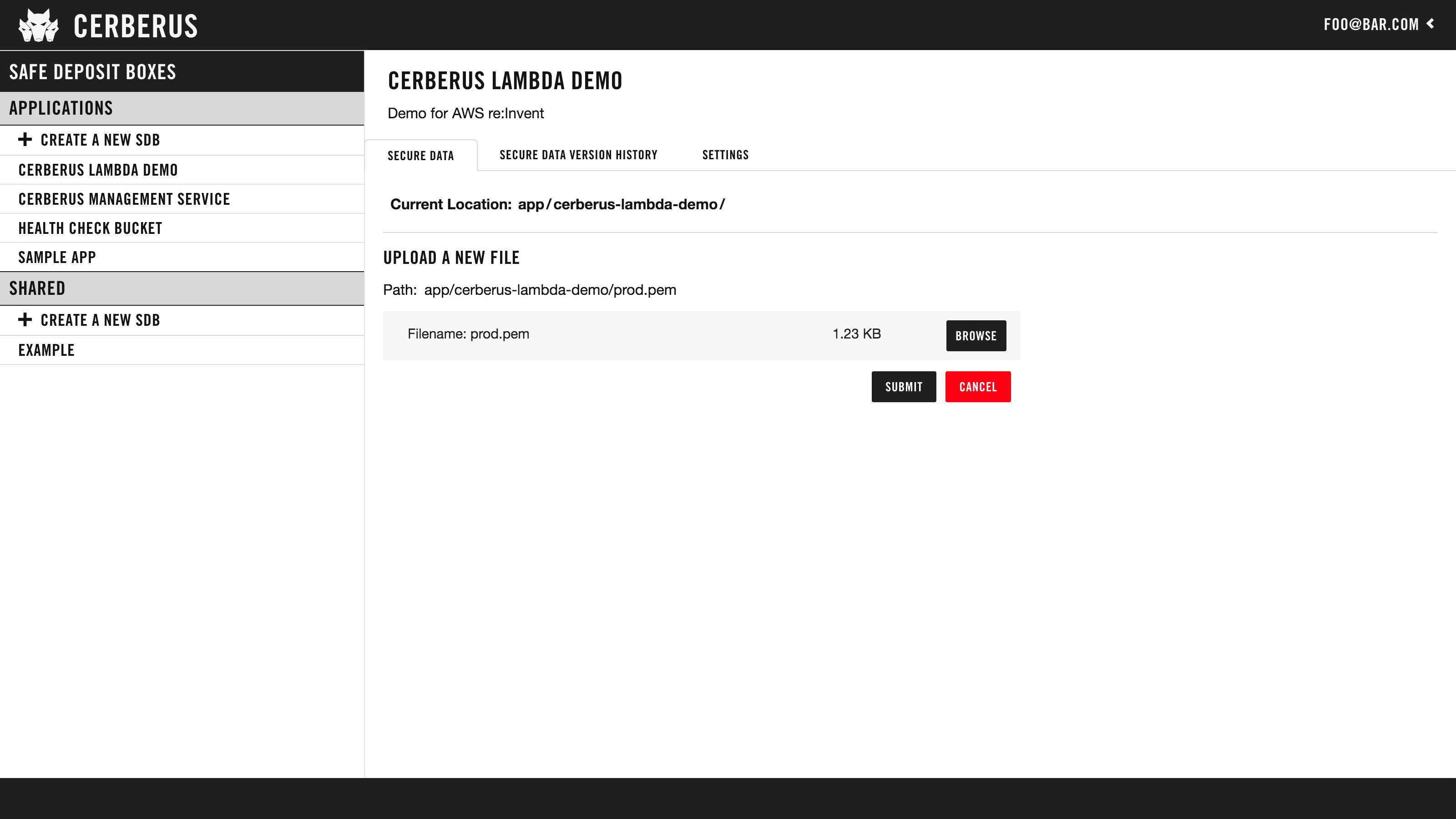Introduction
User Guide
Administration Guide
- Lifecycle Management CLI
- Creating an Environment
- Restoring from Backup
- Deleting an Environment
- Monitoring
- Managing Blacklist/Whitelist
- Audit Logging
Authentication
Architecture
- Infrastructure Overview
- REST API
- High Availability
- Security Features
- Files in S3
- Alternative Solutions
Contributing
File Storage
Overview
Cerberus encrypts and stores secure files as binary blobs in its database.
Users can create, read, update, and delete using one of the Cerberus clients, the Dashboard UI, or the REST API.
Dashboard UI

Clients
Java
import java.nio.file.Files;
import java.nio.file.Paths;
import java.nio.file.Path;
Path path = Paths.get("path/to/file");
byte[] contents = Files.readAllBytes(path);
cerberusClient.writeFile("app/my-app/certificate.cer", contents);
Python
## put_file('SDB Path', 'file name', file handle to file you want to upload)
client.put_file('category/sdb/path/to/certificate.cer', 'certificate.cer', open('file.example', 'rb'))
Note: For the file you open, please make sure it’s opened in binary mode, otherwise the size calculations for how big it is can be off.
Golang
import (
"os"
"github.com/Nike-Inc/cerberus-go-client/cerberus"
"github.com/Nike-Inc/cerberus-go-client/api"
"github.com/Nike-Inc/cerberus-go-client/auth"
)
client, err := cerberus.NewClient(authMethod, nil)
contents, err := os.Open("certificate.cer")
client.SecureFile().Put("app/my-app/certificate.cer", "certificate.cer", contents)
REST API
POST /v1/secure-file/app/my-app/certificate.cer
-
Request (application/json)
-
Headers
X-Cerberus-Token: AaAAAaaaAAAabCdEF0JkLMNZ01iGabcdefGHIJKLtClQabcCVabEYab1aDaZZz12a X-Cerberus-Client: MyClientName/1.0.0 Content-Type: multipart/form-data; boundary=----------4123509835381001 -
Body
------------4123509835381001 Content-Disposition: form-data; name="file-content"; filename="certificate.cer" Content-Type: application/octet-stream PEM87a.............,...........D..; ------------4123509835381001
-
-
Response 204
-
Response 401 (application/json)
-
Body
{ "error_id": "9c4dc9de-2ce2-4b55-9bda-dbd8e2397879", "errors": [ { "code": 99105, "message": "X-Cerberus-Token header is malformed or invalid." } ] }
-
-
Response 404 (application/json)
-
Body
{ "error_id": "6b13cdaa-ce64-473d-9228-5cf9bf0e51a9", "errors": [ { "code": 99996, "message": "Not found" } ] }
-